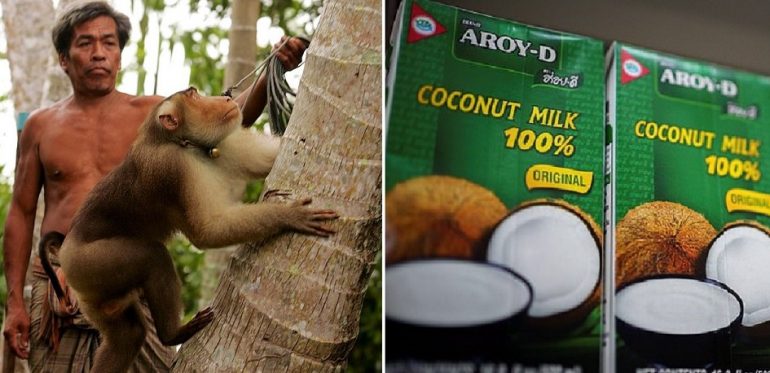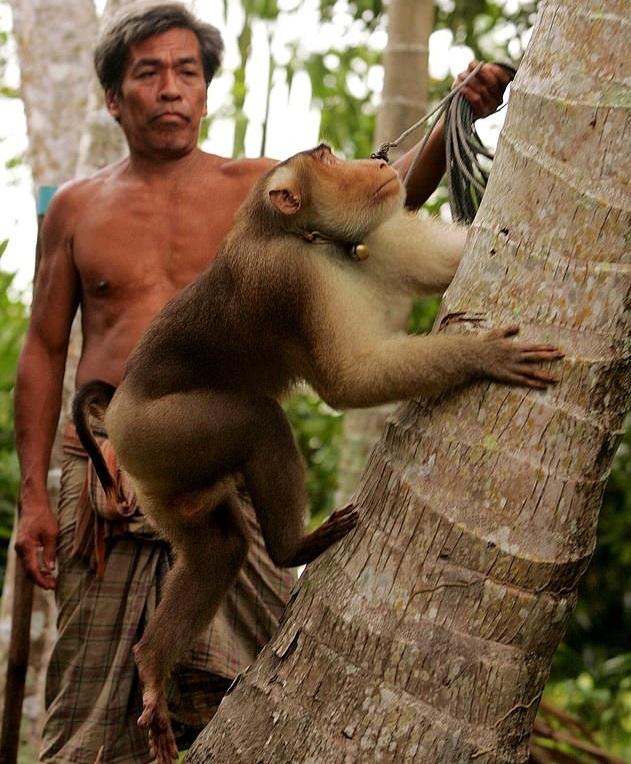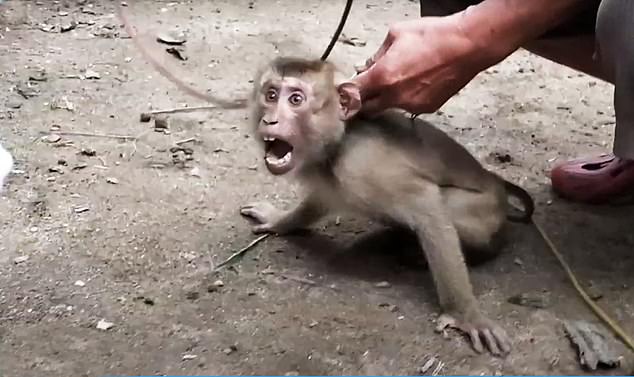July 9, 2020
PETA investigators visited eight farms where they discovered monkeys are forced to pick up to 1,000 coconuts a day for Thailand’s major coconut milk producers—Aroy-D and Chaokoh, according to the Daily Mail.
A total of 13 plantations were identified for using monkey slave labor in Southern Thailand. Macaques are incredibly intelligent and social animals and are able to articulate their feelings and thoughts to one another in huge matriarchal family units. Infants have been known to stay at their mother’s side for years until adulthood. Very similar to human beings.
However, the demand for coconuts in Thailand has created an environment where greed forces people to snatch these monkeys from their mothers during infancy. They’re chained by the neck, thrown into cages barely big enough to hold them and taken to special “monkey schools.”
These macaques are trained to climb 100ft coconut trees (chained at all times) and forced to pick up to 1,000 coconuts a day. Mind you, macaques are about the same size as a coconut. Once up in the trees, the monkeys are trained to twist the coconuts and drop them to the ground and move on to the next one.
A miserable life to feed a $397 million USD coconut milk industry in Thailand. It usually takes up to three months to train these monkeys and when they’re not picking coconuts, they’re also trained to do tricks from shooting basketballs, riding bicycles, and doing yoga for tourists. They’re usually sold to farmers and handlers, between $800 to $2,900 USD.
The damage done to these monkeys are physiological as well as physical. They suffer from depression, loneliness, and grieve for lost companions. Macaque life expectancy is around 36-years in the wild, but about 15-years under slavery. When they’re not picking coconuts or dancing, they pace up-and-down, back-and-forth as far as their chains allow.
Another documentary called “The Kings of Groves” on Vimeo paints a different picture of how the monkeys are treated. There are definitely trainers who properly care for and train monkeys to do work no more differently than cows on a dairy farm.
The Kings Of Groves from Able Films on Vimeo.
Back in 2009, a macaque was continuously beaten so many times, it lost control, climbed up a coconut tree, and hurled a coconut at its 48-year-old Thai handler—killing him. Coconut milk provides a huge source of income for Thailand, so don’t expect the practice of “slave monkeys” to stop anytime soon. However, some say PETA is biased toward Asian countries in the treatment of animals. Not calling out Peru for slaughtering over 15,000 dolphins, annually, yet condemning Japan for its dolphin hunting is a good example.
Feature Images via The Daily Mail




